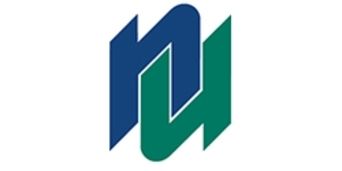APSC 202/293 - Engineering Design and Practice II (Client-based Design)
Timeline
-
January 17, 2022Experience start
-
January 31, 2022Phase 1 Report: Problem Definition, Stakeholders, and Project Scope
-
February 1, 2022Client Meeting
-
February 15, 2022Midterm Client Presentations
-
February 21, 2022Phase 2 Report: Idea Generation and Decision Making
-
March 14, 2022Phase 3 Report: Modelling and Prototype Proposal
-
April 11, 2022Experience end
Timeline
-
January 17, 2022Experience start
-
January 31, 2022Phase 1 Report: Problem Definition, Stakeholders, and Project Scope
Meeting between students and company to confirm: identify and understand the problem and then determine project scope.
-
February 1, 2022Client Meeting
Set up client meeting to learn more about the project and to inform idea generation
-
February 15, 2022Midterm Client Presentations
Provide an update to the client that outlines the teams Phase 2 idea generation and decision making strategies.
-
February 21, 2022Phase 2 Report: Idea Generation and Decision Making
Idea Generation and Decision Making
-
March 14, 2022Phase 3 Report: Modelling and Prototype Proposal
Modelling and Prototype Proposal
-
March 22, 2022Update Client Meetings
Client Meetings
-
March 28, 2022Phase 4 Report: Testing & Triple Bottom Line Update
Testing & Triple Bottom Line Update
-
April 5, 2022Final Client Presentation
Final Client Presentation
-
April 9, 2022Phase 5 Report: Final Design
Final Design
-
April 11, 2022Experience end
Experience scope
Categories
UX design Engineering project managementSkills
problem analysis design thinking critical thinking communication teamworkAPSC 202 and APSC 293 are paired courses taken together concurrently, with integrated curriculum and assessed “deliverables”. In APSC 202, students will participate constructively in teams to create solutions to open-ended complex problems, using widely accepted design methods and tools. This project-based course provides instruction throughout the semester focusing on problem scoping, creativity and idea generation, decision making incorporating technical, economic, societal, and environmental factors, safety, engineering codes and regulations, and engineering ethics, diversity and inclusion.
Learners
Student teams will submit a final report that outlines the engineering design process they used in the course and how their final design recommendation provides a solution to their complex problem.
Project timeline
-
January 17, 2022Experience start
-
January 31, 2022Phase 1 Report: Problem Definition, Stakeholders, and Project Scope
-
February 1, 2022Client Meeting
-
February 15, 2022Midterm Client Presentations
-
February 21, 2022Phase 2 Report: Idea Generation and Decision Making
-
March 14, 2022Phase 3 Report: Modelling and Prototype Proposal
-
April 11, 2022Experience end
Timeline
-
January 17, 2022Experience start
-
January 31, 2022Phase 1 Report: Problem Definition, Stakeholders, and Project Scope
Meeting between students and company to confirm: identify and understand the problem and then determine project scope.
-
February 1, 2022Client Meeting
Set up client meeting to learn more about the project and to inform idea generation
-
February 15, 2022Midterm Client Presentations
Provide an update to the client that outlines the teams Phase 2 idea generation and decision making strategies.
-
February 21, 2022Phase 2 Report: Idea Generation and Decision Making
Idea Generation and Decision Making
-
March 14, 2022Phase 3 Report: Modelling and Prototype Proposal
Modelling and Prototype Proposal
-
March 22, 2022Update Client Meetings
Client Meetings
-
March 28, 2022Phase 4 Report: Testing & Triple Bottom Line Update
Testing & Triple Bottom Line Update
-
April 5, 2022Final Client Presentation
Final Client Presentation
-
April 9, 2022Phase 5 Report: Final Design
Final Design
-
April 11, 2022Experience end
Project Examples
Requirements
Course learning objectives include the following:
- Develop effective teaming skills.
- Improve written and verbal (formal presentation and informal business meeting) communication skills.
- Use creative thinking and apply the design process to solve open ended complex design problems.
- Develop information literacy (determining need, locating evaluating, citing, using ethically).
- Use math and science, and engineering science principles to simulate, analyze, and model real world problems.
- Develop project management skills.
- Develop awareness of engineering as a regulated profession, including reference to relevant engineering regulations/codes/standards.
- Consider financial, environmental, and social factors and public interests in decision-making.
- Feel engaged in engineering.
Additional company criteria
Companies must answer the following questions to submit a match request to this experience:
A representative of the company will be available to answer questions from students in a timely manner for the duration of the project.
A representative of the company will be available for a discussion with the administrator of the course to review the project scope.
A representative of the company will be available to attend mid-term and final team design presentations at a mutually agreeable time.
Timeline
-
January 17, 2022Experience start
-
January 31, 2022Phase 1 Report: Problem Definition, Stakeholders, and Project Scope
-
February 1, 2022Client Meeting
-
February 15, 2022Midterm Client Presentations
-
February 21, 2022Phase 2 Report: Idea Generation and Decision Making
-
March 14, 2022Phase 3 Report: Modelling and Prototype Proposal
-
April 11, 2022Experience end
Timeline
-
January 17, 2022Experience start
-
January 31, 2022Phase 1 Report: Problem Definition, Stakeholders, and Project Scope
Meeting between students and company to confirm: identify and understand the problem and then determine project scope.
-
February 1, 2022Client Meeting
Set up client meeting to learn more about the project and to inform idea generation
-
February 15, 2022Midterm Client Presentations
Provide an update to the client that outlines the teams Phase 2 idea generation and decision making strategies.
-
February 21, 2022Phase 2 Report: Idea Generation and Decision Making
Idea Generation and Decision Making
-
March 14, 2022Phase 3 Report: Modelling and Prototype Proposal
Modelling and Prototype Proposal
-
March 22, 2022Update Client Meetings
Client Meetings
-
March 28, 2022Phase 4 Report: Testing & Triple Bottom Line Update
Testing & Triple Bottom Line Update
-
April 5, 2022Final Client Presentation
Final Client Presentation
-
April 9, 2022Phase 5 Report: Final Design
Final Design
-
April 11, 2022Experience end
